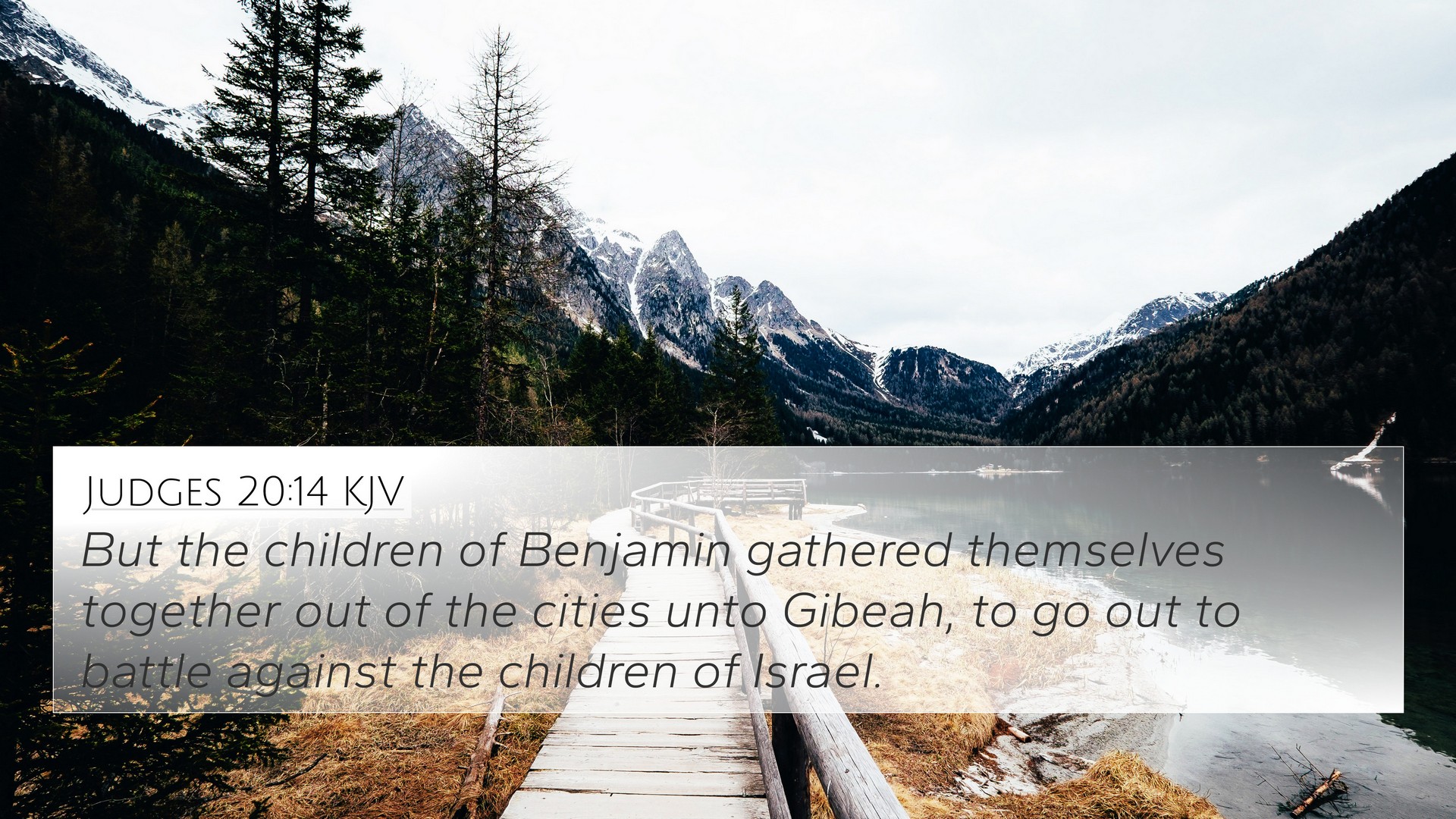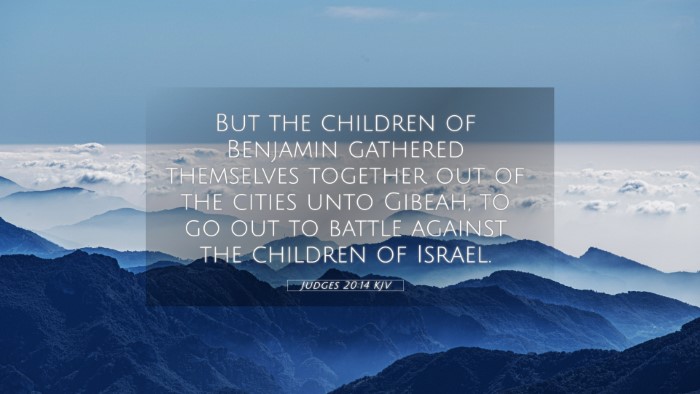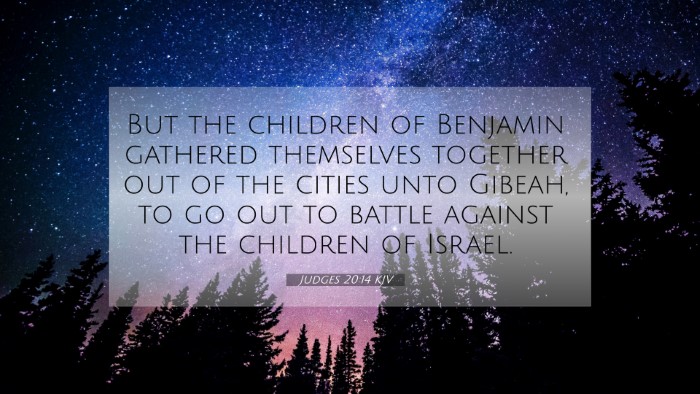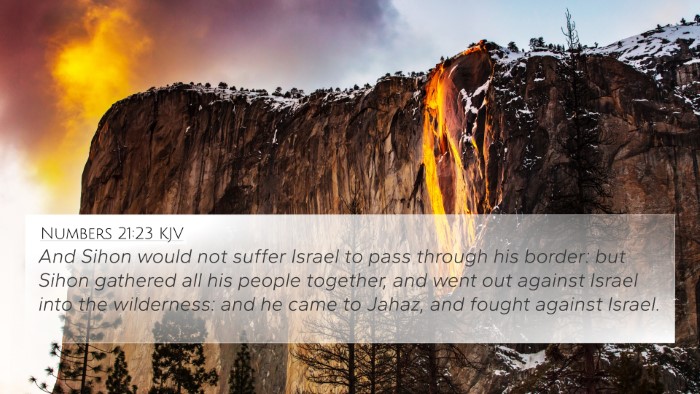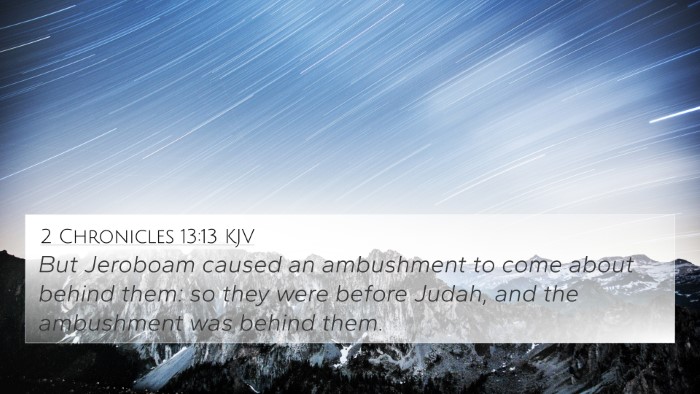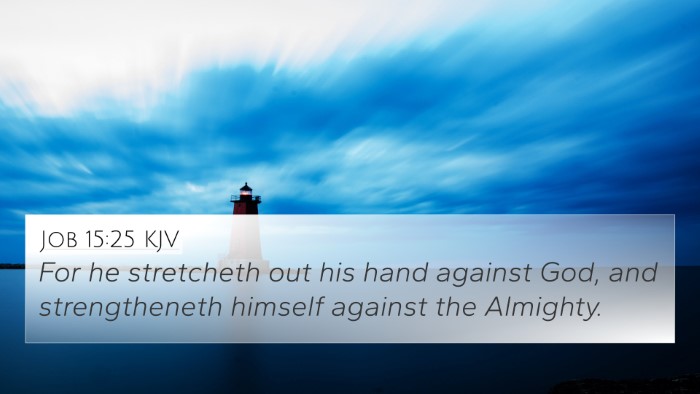Understanding Judges 20:14
Verse: Judges 20:14 - "But the children of Benjamin gathered themselves together out of the cities unto Gibeah, to go out to battle against the children of Israel."
Summary and Context
This verse is set against the backdrop of a civil conflict involving the tribe of Benjamin and the other tribes of Israel. The decision of the Benjamites to gather at Gibeah represents a critical moment in the narrative of Judges, illustrating not only tribal loyalty and solidarity but also the seriousness of the situation that unfolds as a result of previous injustices.
Commentary Insights
- Matthew Henry: He explains that the Benjamites were unyielding in their support of Gibeah, despite the grievous sin that had occurred there. Their actions reflect a profound sense of pride and loyalty that leads to their reckoning against the rest of Israel.
- Albert Barnes: Barnes emphasizes the consequences of societal sin, noting that the Benjamites’ willingness to engage in battle highlights the depths of moral decline. He draws parallels between rebellion and the broader implications for the nation of Israel.
- Adam Clarke: Clarke reflects on the strategic gathering of the Benjamites and their readiness for conflict. He underscores the conflict's gravity as it showcases a nation divided, providing a critical moment for understanding the cycles of sin and judgment in Israel's history.
Thematic Connections
This verse connects to various significant themes in the Scriptures, particularly surrounding conflict, unity, and divine judgment. Below are pertinent thematic connections established through cross-referencing:
- Unity vs. Division: The initial unity of the other tribes in contrast to the division represented by Benjamin acts as a literary device to illustrate the fracturing of Israel. Similar themes can be found in 1 Corinthians 1:10, which calls for unity among believers.
- Moral Deterioration: This event is symptomatic of Israel's moral decline during the Judges' period, which is echoed in Judges 17:6 and Judges 21:25, where "everyone did what was right in his own eyes."
- Consequences of Sin: The narrative highlights that pure allegiance to one tribe, even in the face of wrongdoing, leads to devastating consequences as referenced in Galatians 6:7, where one reaps what one sows.
- Conflict Resolution: The call to battle can be examined similarly to Matthew 18:15-17, which speaks about addressing grievances; the contrast shows Israel’s failure to resolve issues peacefully.
Bible Verse Cross-References
Here are several cross-references that illuminate the themes present in Judges 20:14:
- Genesis 49:27 - Prophecy regarding the fierceness of the tribe of Benjamin.
- Judges 19:22-30 - The incident that led to this conflict and highlights the moral failures of Gibeah.
- Deuteronomy 13:12-15 - Instructions on dealing with cities that turn to idolatry and immorality.
- 1 Samuel 15:23 - Provides insight into rebellion equating to witchcraft, amplifying the theme of disobedience.
- Proverbs 16:18 - “Pride goes before destruction,” reflecting the impulsive loyalty of the Benjaminites.
- Romans 12:18 - The call to live peaceably, in contrast to the conflict represented in this chapter.
- 2 Corinthians 10:4 - Discusses spiritual warfare that can be paralleled to the intense physical conflict in Judges.
Conclusion
The analysis of Judges 20:14 reveals a poignant snapshot of the struggles within Israel, the consequences of aligning loyalty with unrepentant sin, and the broader implications of conflict resolution among God’s chosen people. The patterns of disobedience, loyalty to wrongdoing, and resultant strife continue to resonate with themes found throughout both the Old and New Testaments.
Tools for Bible Cross-Referencing
For deeper study and connecting these themes and verses, consider utilizing various tools such as:
- Bible concordance for referencing specific topics.
- Cross-reference guides to find thematic connections.
- Bible reference resources to explore historical contexts.
- Comprehensive materials for a thorough understanding of Biblical texts.
